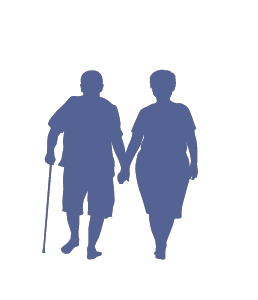
About Zoonotic Disease
Zoonotic diseases are caused by germs that spread between animals and people. These germs include viruses, bacteria, parasites, and fungi, and can cause various illness from mild to severe, even death. Sometimes animals can look healthy but still carry germs that can make people sick.
Zoonotic diseases are common in the United States and around the world. Scientists think that more than 6 out of 10 infectious diseases in people come from animals, and 3 out of 4 new infectious diseases in people also come from animals.
Zoonotic Diseases
How Do Germs Spread Between Animals And People?
- Direct contact: Touching an infected animal's saliva, blood, urine, or other body fluids, like from petting, bites, or scratches.
- Indirect contact: Touching places where animals live or objects that have germs on them, like aquarium water, pet living areas, chicken coops, barns, plants, soil, and pet water dishes or pet food.
- Vector-borne: Being bitten by a tick, mosquito, or flea.
- Foodborne: Getting sick from eating contaminated food, such as raw milk, undercooked meat or eggs, or fruits and vegetables with germs from infected animals.
- Waterborne: Drinking or touching water contaminated with feces (poop) from an infected animal. Who is at a higher risk of serious illness from zoonotic diseases?
Who is at a Higher Risk of Serious Illness from Zoonotic Diseases?
-
 Children younger than 5
Children younger than 5 -
 Pregnant people
Pregnant people
-
 Adults older than 65
Adults older than 65 -
 People with weakened immune systems
People with weakened immune systems
What can you do to Protect Yourself and your Family from Zoonotic Diseases?
- Wash your hands. Always wash your hands after being around animals, even if you didn't touch the animals. Many germs are spread by not washing hands properly with soap and clean, running water. If you don't have soap and water, use a hand sanitizer with at least 60% alcohol.
- Prevent bites from mosquitoes, ticks, and fleas. Use an Environmental Protection Agency (EPA)-registered insect repellent. Wear long sleeves, pants, and socks to cover your skin. Stay in screened or air-conditioned areas. Check yourself, your clothes, and your pets for ticks after being outside, and remove them right away. Keep grass short, remove leaf litter, and use flea treatments on pets.
- Learn how to handle food safely for yourself, your family, pets, and other animals.
- Be aware of zoonotic diseases at home, petting zoos, animal exhibits, childcare settings, schools, and when traveling.
- Avoid bites and scratches from animals.
Have Questions?
Contact Information
County of Los Angeles Department of Public Health
313 N. Figueroa Street, #212
Los Angeles, CA 90012
Phone: (213) 240-7941
Fax: (213) 482-4856
Email: acdc2@ph.lacounty.gov